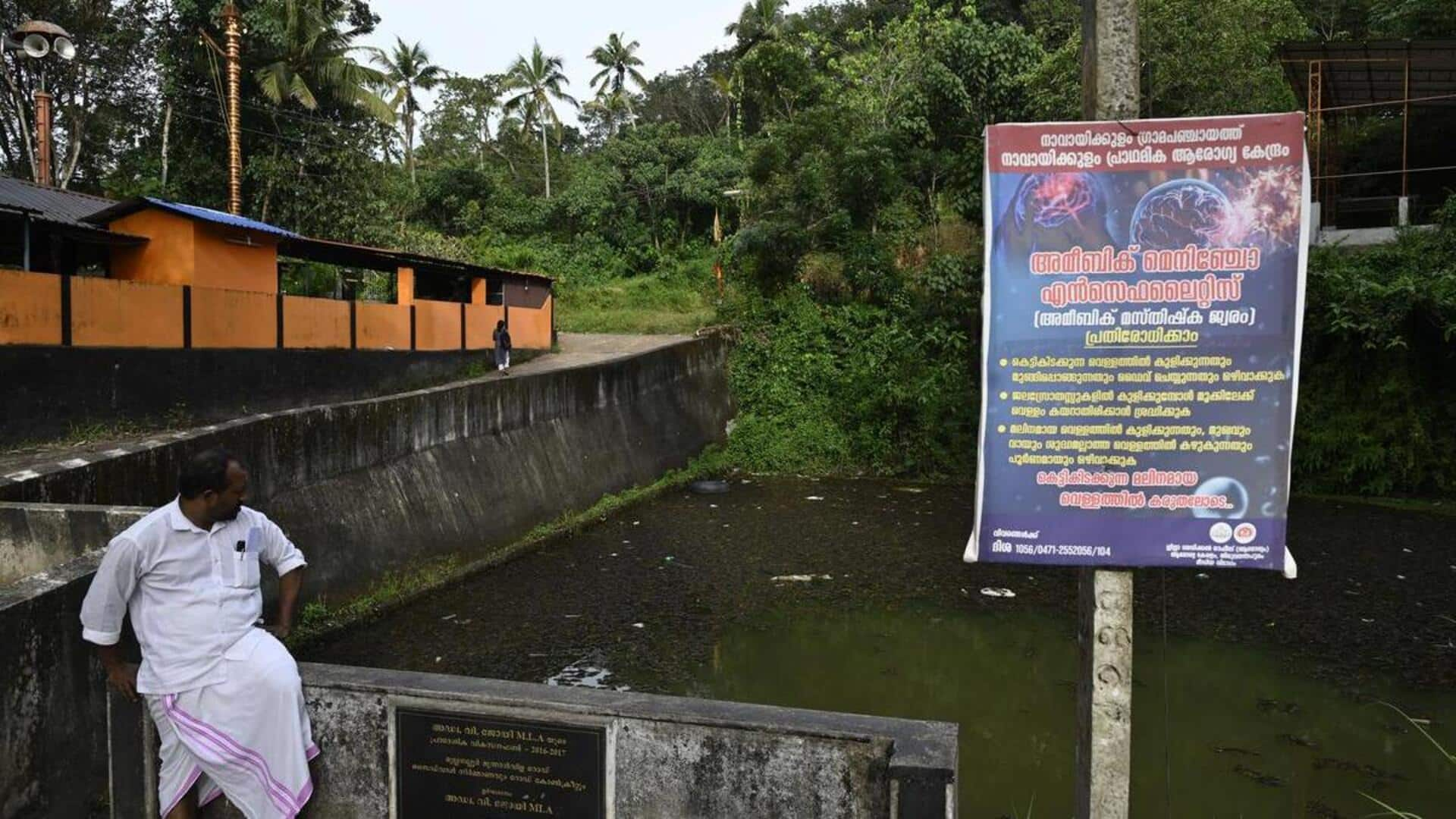
Kerala reports 104 cases, 23 deaths of 'brain-eating' amoebic encephalitis
What's the story
Kerala has reported 104 cases of amoebic encephalitis, a rare and often fatal brain infection caused by the "brain-eating amoeba" Naegleria fowleri. The infection has claimed 23 lives so far, with Kollam and Thiruvananthapuram districts being the worst affected. Cases are also on the rise in Kozhikode and Malappuram districts. State Health Minister Veena George said all encephalitis cases must be mandatorily reported since the Nipah outbreak in Kozhikode in 2023.
Preventive measures
Mandatory reporting of all encephalitis cases
George said, "Following the Nipah outbreak in Kozhikode in 2023, it was decided and directed that all cases of encephalitis (brain fever) must be mandatorily reported and that the causes behind such cases should be identified." This decision led to the official reporting of encephalitis cases from 2024. The Health Department has also issued guidelines for the diagnosis and treatment of the disease.
Reduced mortality
Global fatality rates
Globally, the fatality rate for Naegleria fowleri infection is 98%, while Acanthamoeba-related cases have a death rate of over 70%. However, Kerala has managed to significantly reduce the death rate by early detection and treatment. An action plan based on the One Health approach was prepared and implemented in 2025 to prevent amoebic encephalitis.
Collaborative approach
One Health approach
George said various departments are working together under Chief Minister Pinarayi Vijayan's leadership "to ensure scientific chlorination and other preventive measures are continuously carried out across the state." The One Health approach emphasizes the interconnectedness of human, animal, and environmental health in preventing disease outbreaks like amoebic encephalitis. The state government describes the program as a "collaborative, multi-sectoral initiative," which "enhances the state's capacity for surveillance, prediction, response, and long-term planning to ensure a healthier future for all."